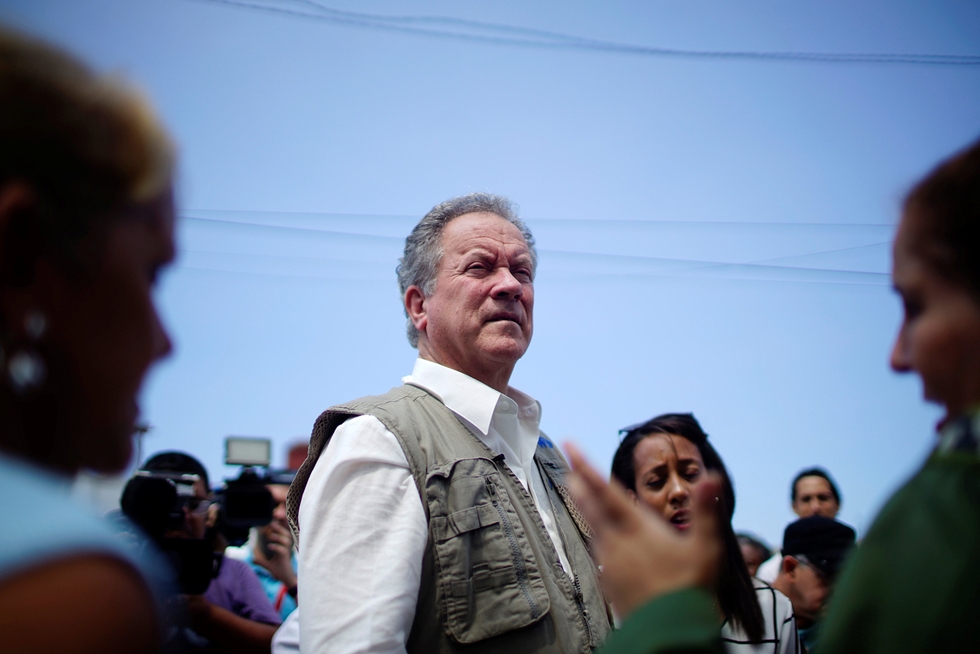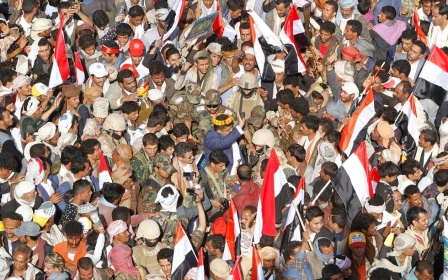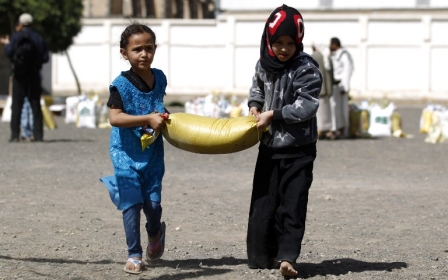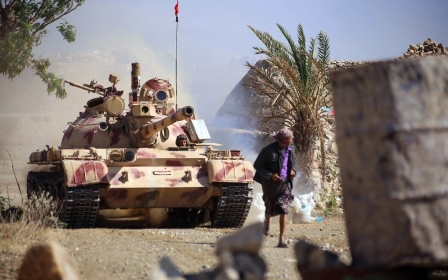World Food Programme chief says Gulf must 'step up' Yemen aid

Gulf states must shell out more money to help eliminate widespread hunger in Yemen, which has been devastated by two years of civil war, the head of the World Food Programme said on Friday.
David Beasley's call for help is the latest salvo from the United Nations hunger agency, which wants more action from nations that neighbour Yemen, including Saudi Arabia, which has been leading a military campaign there.
"What we're challenging are the Gulf states to step up and do more, particularly when these conflicts are predominantly in your region," Beasley said during a side event of the annual UN General Assembly, a weeklong meeting in New York of world leaders and diplomats.
"These are your cousins, these are your brothers, these are your sisters ... so you need to step up more."
Two weeks ago, Beasley argued that Saudi Arabia alone should fund steps to cut disease and hunger in Yemen, comments that were unusually forthright for a UN official.
The Saudi-led coalition, which has been waging a war against the Houthis since March 2015, has been repeatedly criticised for attacks on civilians.
More than 8,000 people have been killed, including at least 1,500 children, and millions displaced in the conflict, which has pushed the impoverished country to the brink of famine.
A cholera outbreak has also claimed the lives of more than 1,800 people since April, with 400,000 suspected cases across the country, according to the United Nations and the International Committee of the Red Cross.
The United Nations warned in July that 80 percent of Yemen's children desperately needed aid in what the organisation called the "largest humanitarian crisis in the world".
Beasley, who began his job in April, said his challenge to Gulf countries followed the completion of his first objective - "to protect the funding from the United States" to the WFP.
US donations of about $2bn to the WFP, which distributes emergency food, represent about a third of the UN body's budget, he said.
So far this year, Saudi Arabia had contributed an estimated $12m to the WFP's emergency operation in Yemen, compared to about $260m from the United States, a WFP spokeswoman told the Thomson Reuters Foundation.
There were no records of Bahrain, Kuwait, Oman, Qatar or the United Arab Emirates funding the agency's operation in Yemen, she said.
Last year, Saudi Arabia contributed some $10m and the United Arab Emirates gave $6m to the WFP for food assistance in Yemen, according to WFP estimates.
Again, there were no records of 2016 contributions by other Gulf nations to WFP's efforts to feed people left hungry by conflict in Yemen, the WFP spokeswoman said.
Yemen, located on the Arabian Peninsula, shares about 1,000 miles (1,750 km) of borders with Saudi Arabia and Oman.
Beasley is a former governor of the US state of South Carolina who was nominated by US President Donald Trump to head the world's largest food agency.
New MEE newsletter: Jerusalem Dispatch
Sign up to get the latest insights and analysis on Israel-Palestine, alongside Turkey Unpacked and other MEE newsletters
Middle East Eye delivers independent and unrivalled coverage and analysis of the Middle East, North Africa and beyond. To learn more about republishing this content and the associated fees, please fill out this form. More about MEE can be found here.




